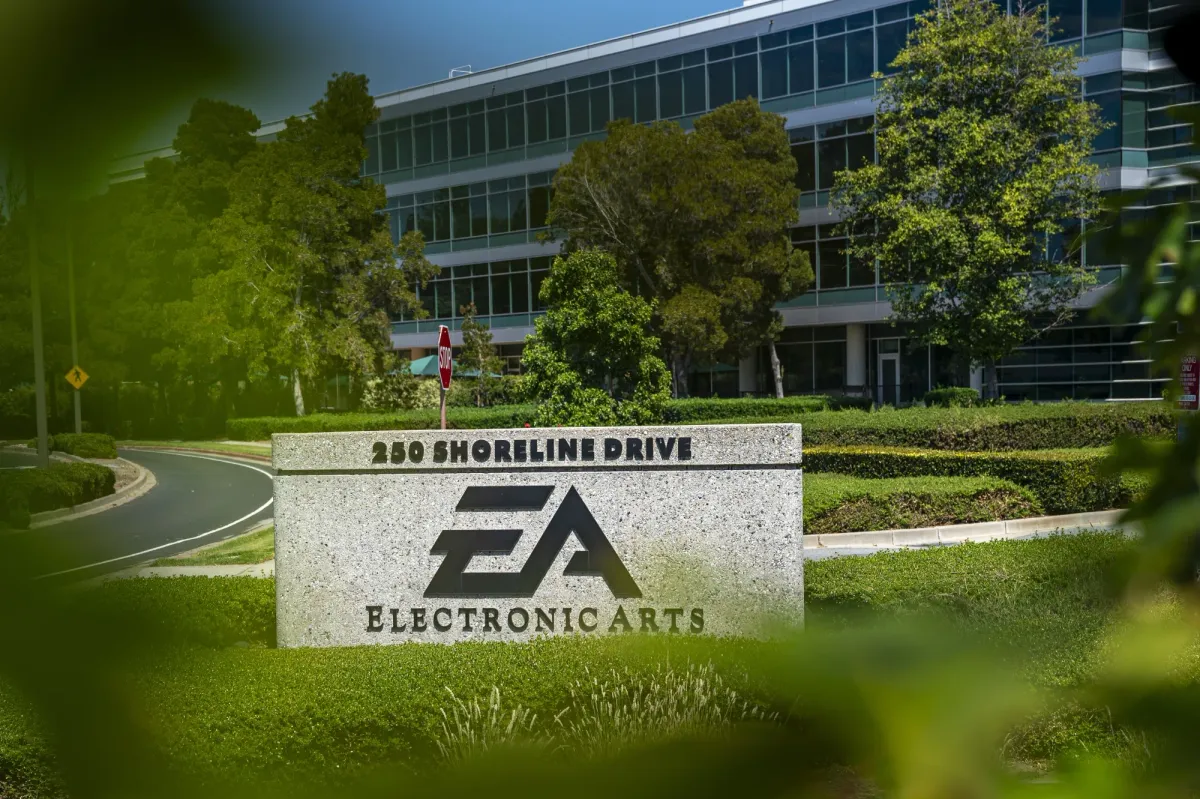EA’s Shocking $55 Billion Buyout: How Saudi Arabia Plans to Turn Games Like The Sims into Global Entertainment Empires

EA’s Massive $55 Billion Sale Is Changing the Game — Literally
In one of the biggest shakeups in gaming history, Electronic Arts (EA) is being bought out for $55 billion by a trio of powerhouse investors: Saudi Arabia’s Public Investment Fund (PIF), Silver Lake, and Jared Kushner’s Affinity Partners. This isn’t just a financial move — it’s a loud signal that the future of gaming is no longer just about consoles and controllers.
It’s about intellectual property (IP) — and how iconic video game franchises are being turned into blockbuster movies, hit TV series, and cross-media juggernauts.
Why EA Was a Prime Target
EA is one of the most iconic names in the industry, with a massive portfolio of game franchises that stretch across genres and generations. The buyout gives the new owners control over:
- Battlefield
- Apex Legends
- The Sims
- FIFA/EA Sports FC
- Mass Effect
- Dragon Age
These aren't just games — they’re valuable brands with global audiences and decades of recognition.
The Real Play: Turning Games Into Entertainment Franchises
While gaming is still the biggest entertainment sector by revenue, it’s currently in a post-pandemic slump. Spending is down, competition is fierce, and companies are being forced to find new ways to grow.
One major trend? Expanding gaming IP into film, streaming, and beyond.
The shift makes sense. In the past, game-to-film adaptations were often disasters. Think 2005's Doom or 2009’s Street Fighter: The Legend of Chun-Li — both critical and commercial flops.
But the tide has turned.
- HBO’s The Last of Us became a global hit in 2023.
- Amazon’s Fallout series brought post-apocalyptic chaos to streaming with huge success.
- Netflix’s Arcane, based on League of Legends, is coming back for another season.
- Nintendo’s Super Mario Bros. movie broke box office records and already has a sequel in the works.
- A Call of Duty movie is reportedly in development at Paramount and Skydance.
EA doesn’t want to be left behind — and it's already making moves. The company has confirmed it’s partnering with Amazon’s MGM Studios to bring The Sims to life on the big screen.
Why Saudi Arabia Is Betting Big on Gaming and Digital Media
Saudi Arabia’s Public Investment Fund (PIF) has been aggressively investing in digital entertainment. Through its gaming arm, Savvy Games Group, it has already bought or invested in giants like Take-Two Interactive and Nintendo.
This isn’t just about financial returns — it’s a cultural and strategic shift. Saudi Arabia is trying to diversify its economy, reduce dependency on oil, and build a stronger presence in digital media, cinema, and esports.
Gaming fits perfectly into that vision, especially when it involves beloved franchises that resonate globally.
Why Everyone Wants a Piece of Gaming IP
Gaming IP is now seen as the holy grail of entertainment content. Unlike many Hollywood franchises, game properties often come with built-in fan bases, global reach, and decades of lore — perfect for expanding into new media.
But there’s another reason big investors are diving in: consolidation during a down market.
With gaming companies feeling the pinch of slowing consumer spending, valuations are lower. That creates opportunities to buy major IP assets at a discount, and build for the long term.
Cautionary Tales: Not All IP Plays Work Out
Of course, buying IP is only half the battle — how you use it matters just as much.
Take Embracer Group, for example. The Swedish gaming giant went on a buying spree, scooping up dozens of studios and franchises. But poor execution, underwhelming releases, and internal chaos led to a company split into three separate units in 2024.
That’s a warning sign for investors: big IP isn’t a guaranteed win. High production costs, delays, or fan backlash can quickly turn a promising asset into a costly problem.
Analysts Weigh In: Is This Smart Strategy or Expensive Gamble?
Experts say there’s no question that high-quality video game IP is becoming more valuable. Gamers are increasingly loyal to a few massive franchises, and those titles dominate engagement, streaming, and social media.
But they also warn about rising costs, especially when expanding into film and television.
Done right, owning a top-tier franchise like Battlefield or The Sims can open the door to massive cross-platform revenue. Done wrong, it can quickly spiral into overhead-heavy, underperforming media spinoffs.
What’s Next for EA?
1. Battlefield 6 Launch
EA is expected to launch the next installment of its flagship shooter soon — and expectations are high. With Call of Duty potentially heading to theaters, Battlefield may follow.
2. More Film/TV Deals
With the Amazon-MGM Sims project in motion, expect more announcements tied to EA properties.
3. Stronger Global Footprint
With PIF backing, EA is likely to expand further into international markets, especially in the Middle East and Asia.
Final Thoughts
The $55 billion acquisition of EA isn’t just a business deal — it’s a major milestone in the blurring lines between gaming, film, and streaming. As traditional entertainment companies scramble to stay relevant, video games are becoming the new Hollywood.
For players, this could mean better games, more immersive worlds, and new ways to engage with their favorite franchises.
For investors, it’s a reminder that gaming IP is no longer niche — it’s central to the future of entertainment.
Suggested Tags:
EA, Electronic Arts, gaming industry, Saudi Arabia, PIF, video game IP, media crossover, Battlefield, The Sims, gaming acquisition, Apex Legends, Silver Lake, game-to-film, gaming news, entertainment trends

